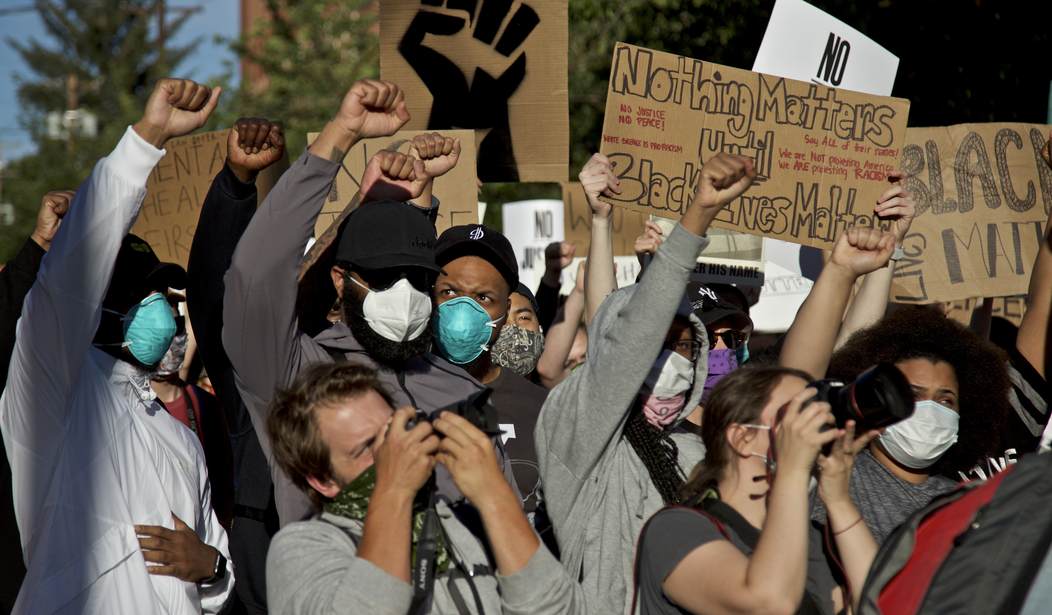In light of the recent societal and cultural upheavals related to racism and social justice, it is vitally important for Evangelicals to be explicit and forthright about how their spiritual convictions guide them on these issues. As an Evangelical institution called to equip students to proclaim the Gospel, engage the culture, and defend the truth (including the inspiration and inerrancy of the Bible), Southern Evangelical Seminary (SES) stands for the inherent value of all human life and against racism in all its insidious forms while also acknowledging that some professing Christians throughout the church’s history have attempted to hijack the Gospel message for racist causes.
Evangelicals certainly affirm the belief that “Black Lives Do Matter.” In fact, all human lives are sacred, whatever their ethnicity. Why? The fact that Jesus Christ, the Son of God, died on the cross to purchase eternal salvation for every human being who will accept Him as their Lord and Savior makes every human being’s life sacred.
However, in the midst of the very emotion-laden debate currently rending the social fabric of our society as we seek once again to deal with the racism that has always been the serpent in America’s Eden, it is critically important to take extraordinary measures to do everything within our power not to be misunderstood, as well as seeking to bring greater understanding to the discussion.
Consequently, while nearly all true Evangelicals affirm that “black lives matter” as a subset of “all human lives are sacred,” we must separate ourselves emphatically from the Black Lives Matter (BLM) movement which espouses beliefs that are antithetical to basic foundational tenets of the Christian faith (see BlackLivesMatter.com).
Along with fellow Evangelical ministries such as the Billy Graham Evangelistic Association and the American Family Association, SES has grave, fundamental disagreements with BLM’s moral, cultural, and political agenda. Consequently, Evangelicals should not mouth the mantra “black lives matter,” lest we be misunderstood as supporting their godless agenda.
Recommended
Having stated this position, it is important to acknowledge that the cancer of racism still exists in America. Racism plagues every nation because this disgusting form of sinful human pride is common to the fallen human condition. We are committed to fighting the corruption and darkness of racism with the salt of the law and the light of the Gospel, understanding that all of us are part of the one human race.
While there are many well-meaning people who protest peacefully while holding signs that proclaim “Black Lives Matter,” and have no intention of supporting the BLM organization’s goals, many observers will understandably be confused or misled into believing that such protesters do support such an anti-Christian agenda. Thus, it seems prudent for Christians to avoid even the appearance of evil and find other ways to express their justifiable outrage at racial injustice.
For this reason, SES embraces the more inclusive and less misunderstood phrase that “all human lives are sacred” while emphasizing the need to pursue truth, goodness, and justice for all ethnicities.
Racism is an affront to the Gospel and completely contrary to the good all human beings are called to pursue. The Gospel alone provides complete forgiveness, healing, reconciliation, and victory over the sin of racism and every other manifestation of sin. Our Christian convictions undergirded by classical natural law reasoning compel us to resist racism wherever it is found and to stand for truth, justice, natural rights, and the freedoms they secure. This is true social justice. That is why SES is committed to equipping students with the philosophical and theological tools necessary to engage these cultural issues effectively and comprehensively.
On a personal note, I will never abandon Dr. King’s dream of an America where all “…will not be judged by the color of their skin, but by the content of their character.” Like millions of other Americans who heard that speech, as a 16-year-old, it changed my life - and my understanding of my country, for which I will be forever grateful.
Dr. King was issuing a clarion call for America to live up to the universal promises (based on natural law) of our founding documents not to descend instead into the fetid swamp of cultural Marxism and critical race theory.
As the then future president Barack Obama declared in his rousing keynote speech at the 2004 Democratic National Convention, “…There is not a Black America and a White America and Latino America and Asian America — there’s the United States of America.”
As Senator Ted Kennedy proclaimed in a different context in an earlier Democratic National Convention (1980): “The work goes on, the cause endures, the hope still lives and the dreams shall never die.”
Dr. Richard Land is president of Southern Evangelical Seminary and former president of the Southern Baptists’ Ethics & Religious Liberty Commission (1988-2013). He was named in Time Magazine in 2005 as one of “the 25 most influential Evangelicals” in America.

























Join the conversation as a VIP Member